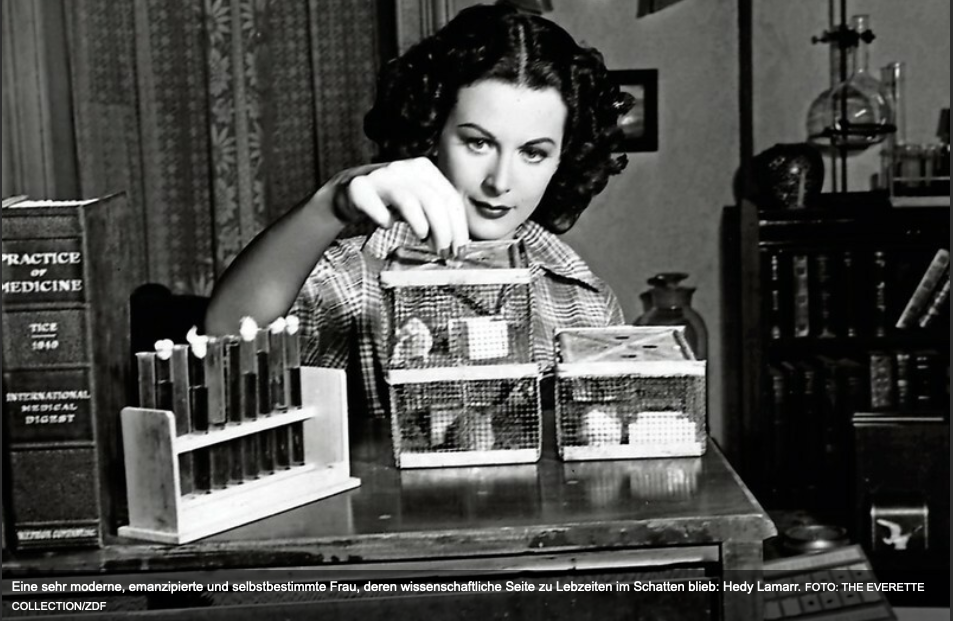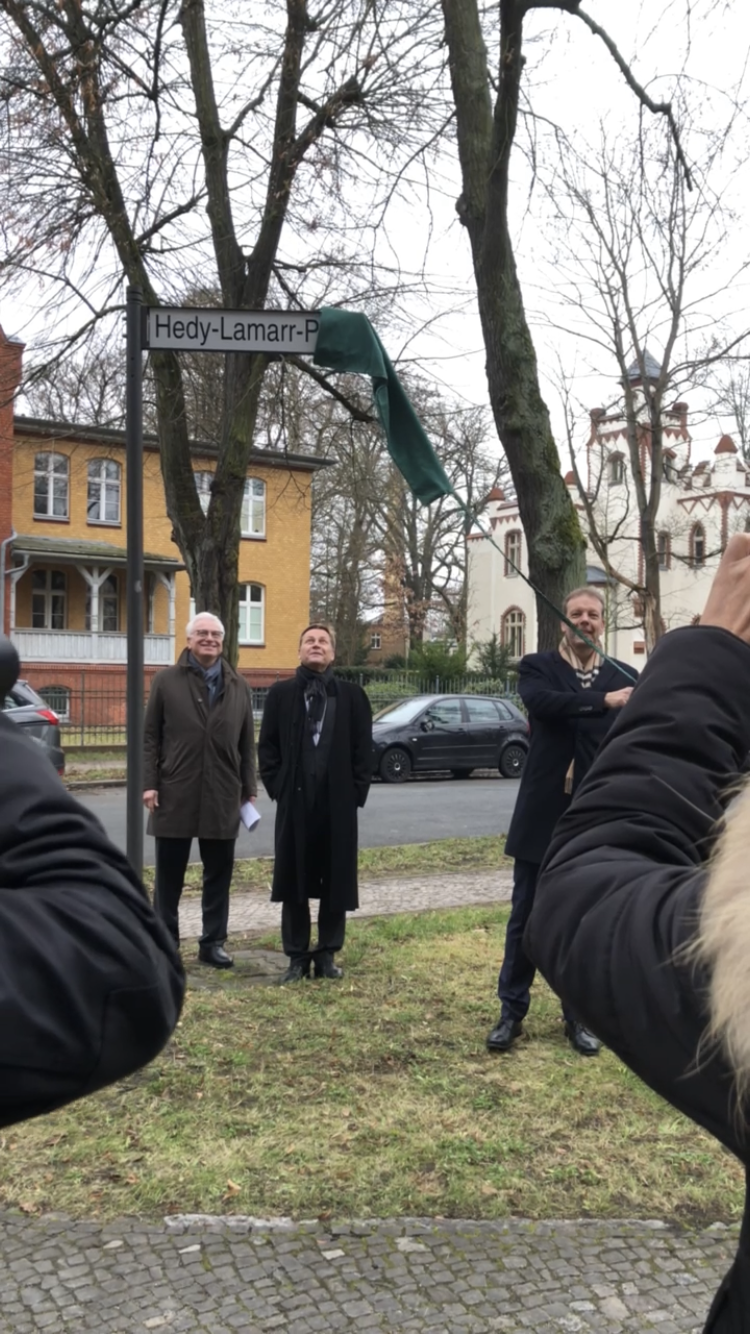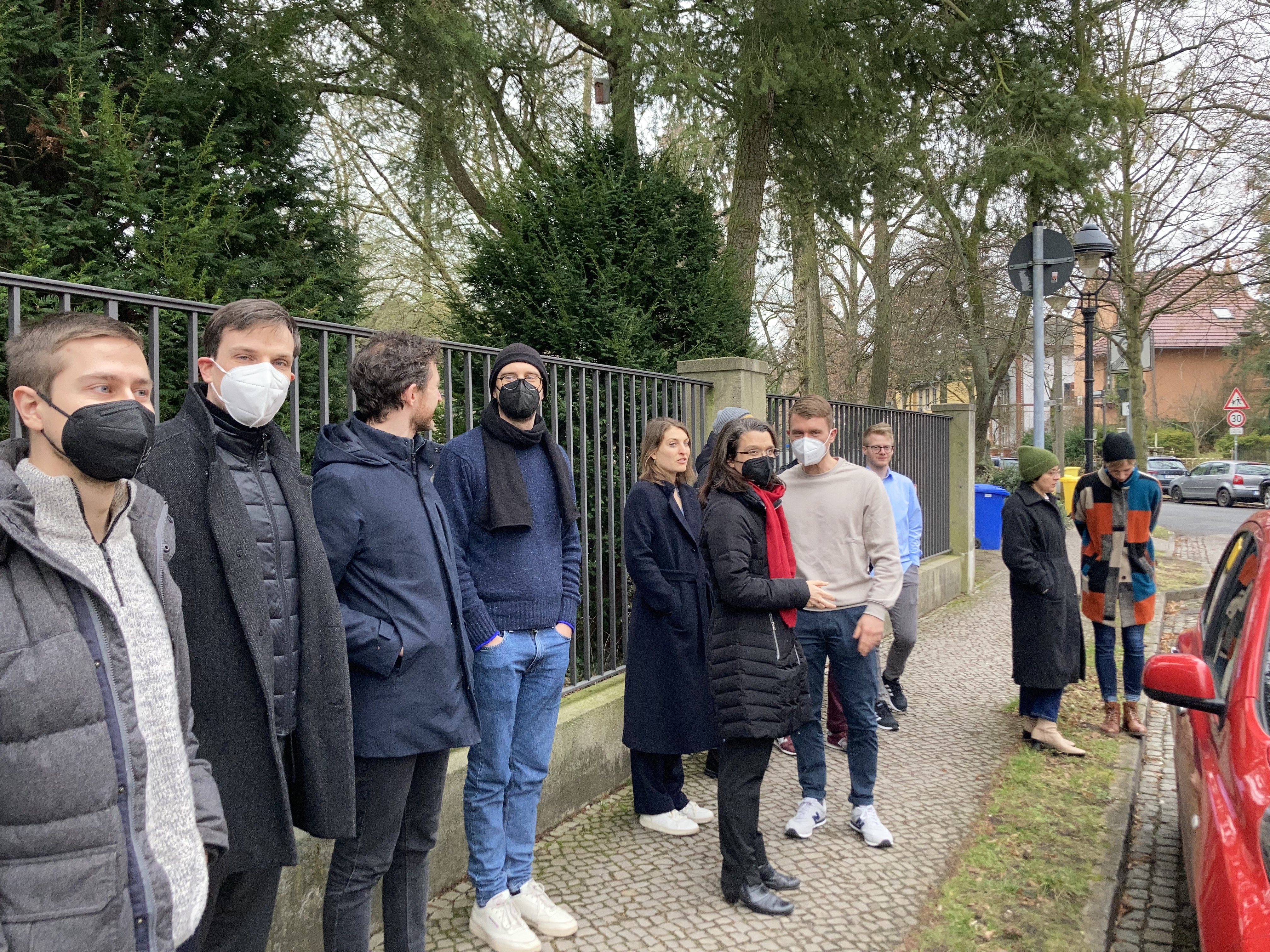On the 22nd anniversary of Hedy Lamarr's death, the previously nameless plaza across from the Digital Villa not far from the Griebnitzsee campus, at the fork of Virchowstraße and Karl-Marx-Straße, was ceremoniously dedicated. University President Prof. Oliver Günther and Potsdam Mayor Burkhard Exner attended the ceremony in person.
Hedy Lamarr "embodies three special features of Potsdam - film, science and a special history" (Mayor Burkhard Exner).


Hollywood-Diva
Hedy Lamarr is considered one of the most dazzling Hollywood divas of the 1940s. She was born Hedwig Eva Maria Kiesler into a large Jewish family in Vienna at the beginning of World War 1 on November 09, 1914. At the end of the twenties Hedwig Kiesler was discovered for acting by director Max Reinhardt. She gained fame at the age of 18 alongside Hans Moser and Heinz Rühmann in the economic crisis comedy "Man braucht kein Geld" (1931). She caused an international sensation with the first nude and orgasm scene in film history in the Czech-Austrian film "Ecstasy" (1933). Four years later she escaped the Nazis, as well as her marriage to the arms manufacturer Fritz Mandl, and went to Hollywood. From then on she bore the stage name Hedy Lamarr and was marketed as the most beautiful woman in the world.
Pioneer of digitalization
Nevertheless, the other side of Hedy Lamarr often remained unnoticed. She was a clever woman with a great inventive spirit - "inventing was her hobby". In her time off from filming, she tinkered in her own laboratory built into the trailer of her caravan. Together with the composer George Antheil, she wanted to support the USA in the fight against the Hitler regime during the Second World War and developed a radio remote control for torpedoes, patented in 1942, in which the control signal was distributed over several frequencies and was thus protected from interference by the enemy. Frequency hopping was not used in World War II, but Lamarr and Antheil's invention would resurface decades later. Today, the invention serves as the basis for secure WiFi, GPS and Bluetooth connections, and has made tap-proof cellular communications and mobile Internet possible. In late recognition of her contributions, the U.S. Electronic Frontier Foundation (EFF) presented her with the Pioneer Award in 1997. In 2014, Hedy Lamarr was posthumously inducted into the National Inventors Hall of Fame. In Switzerland, Austria and Germany, November 9 - the day of Hedy Lamarr's birth - is celebrated as "Inventors' Day".

The honoring of Hedy Lamarr here in Potsdam is not only the appreciation of an important historical personality, it is at the same time a signal for the innovative power of women in technical and scientific fields" ( University President Prof. Oliver Günther).
Almost four years ago, before the Digital Villa was built, Prof. Dr. Norbert Gronau, Chair of Business Informatics, especially Processes and Systems at the University of Potsdam, came up with the idea of giving the square a name with a biography that stands for Babelsberg and digitization. On November 6, 2019, with the support of the city councilor, Mr. Götz Friederich, the application for the naming of the square was approved in the city council meeting.
The name "Hedy Lamarr Square" could not be more apt, the location around the Digital Villa in Karl-Marx Straße was once home to many screen stars and now serves as a flagship for interdisciplinarity and diversity in digitization.

